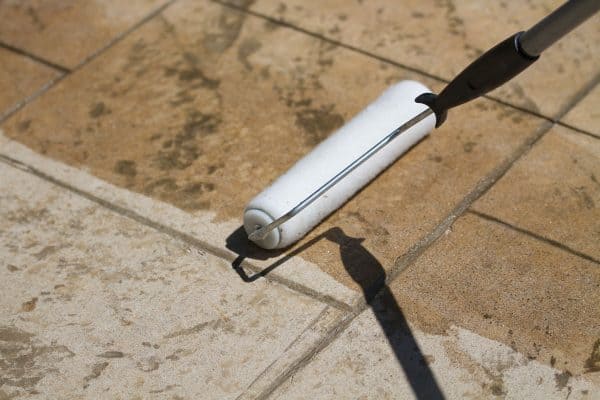Disclosure: We may get commissions for purchases made through links in this post.
Do you have a couple of paver sealers laying around the house? Are you wondering if they would lose their usefulness if they're past their shelf life? Don't fret! We've done our research on this topic to give you everything you need to know about paver sealers.
It is possible for paver sealers to expire if they have been on the shelf for too long. The average shelf life of sealers after purchase is 12 to 18 months. Experts recommend using your sealer within the first few months of purchasing them. Once you have applied a sealer on your paving stones, you would need to reapply them after 3 to 5 years.
As a homeowner, you want the pavers on your patios, driveways, and walkways to look attractive and last long. Choosing the right sealer will help you achieve this. We're here to help you know more about which paver sealers to use, and how to avoid paver sealing disasters.
![Large scale application of a primer to concrete floors. - Does Paver Sealer Go Bad [Can It Expire]](https://pavingplatform.com/wp-content/uploads/2022/04/closeup-applying-sealant-on-the-concrete-floor-Does-Paver-Sealer-Go-Bad-Can-It-Expire-3-800x1200.png)
How Long Does Paver Sealer Last?
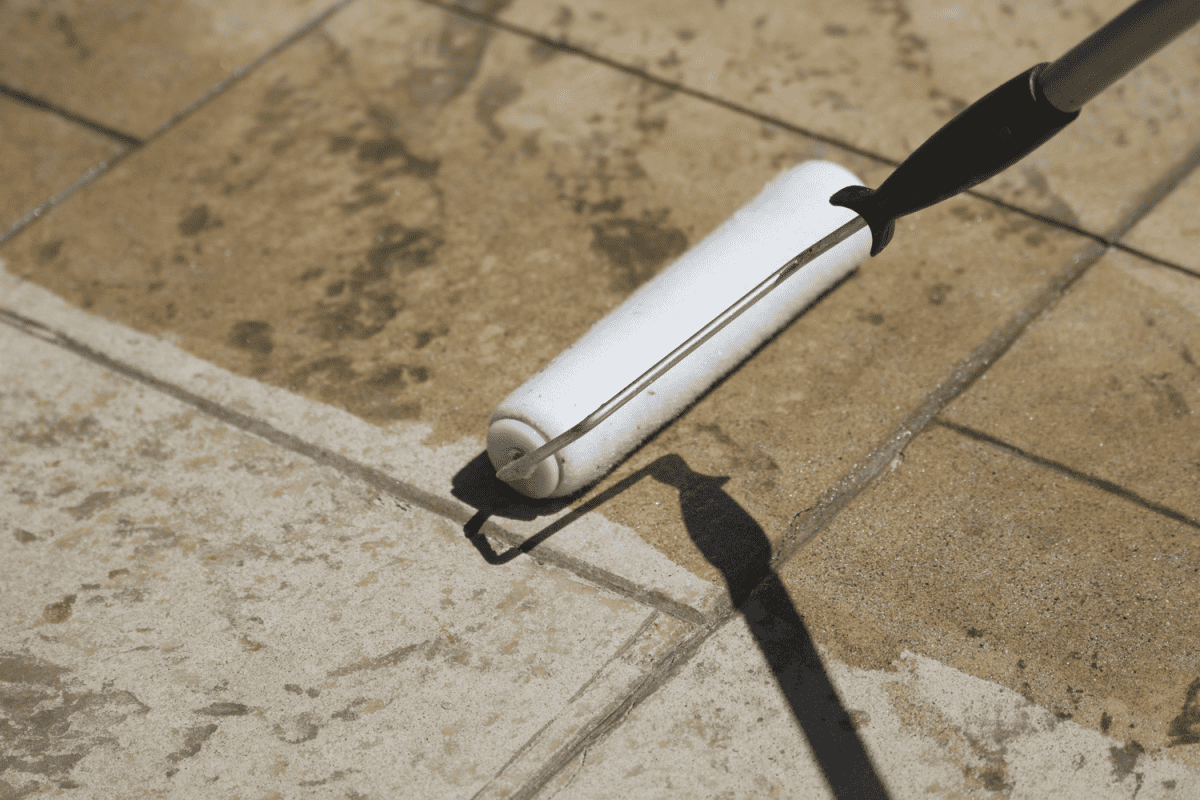
Buying extra cans of paver sealers is the usual trend whenever people decide to seal their paving stones. Because of this reason, there are many cans left unopened or partially used. So how long will these cans last?
According to experts, opened cans of sealers have a shelf life of one to three months. It's recommended to use this product within this timeframe to ensure the durability and longevity of the sealer.
Acrylic sealers last longer once opened other than other types of paver sealers.
Proper Storage
It is essential to know how to properly store paver sealers since proper storage will affect the longevity and overall condition of the product. The best way to find out how to store the sealer is by reading the label or asking your local hardware store.
Here are some ways to preserve and store your paver sealers.
- Close the lid tightly after use to preserve the quality of the sealer. It is not advisable to pour the sealer back into the can if it has been already used unless you strain the remaining substance first.
- Make sure the paver sealer is kept in a cool and dry place; avoid direct contact from sunlight.
- Store the product in a temperature-controlled room. Don't leave the sealer exposed to heating and freezing. If you do so, the sealer will become unusable.
What To Look For When Buying Paver Sealers
The number one cause of paver sealers not working efficiently is not choosing the right sealer for your pavers. There are several varieties of sealers you can choose from, and most of these are not formulated to be used on pavers.
When buying the right paver sealer, remember that each one has their own advantages. To find the best sealer for your pavers, you should consider a lot of factors such as its price, finish, durability, and drying time. Keep in mind that the protection of your pavers depends on which sealer you choose.
1. Finish
Finish refers to the final appearance of the pavers after a sealer is applied and cured.
One important thing to know is that there are two types of paver sealers which are film-forming (gloss or semi-gloss) and non-film-forming (matte finish). Film-forming sealers are wet-look and clear-look. This kind of sealer offers the best protection against freeze-thaw cycles, mold, and debris because they build a protective physical barrier on the pavers' surface.
On one hand, non-film-forming sealers are color boost and natural look. They offer high-quality protection for the paver's surface against moisture and wear and tear.
For a more natural finish, non-film-forming paver sealers work best.
2. Non-Slip
When choosing a paver sealer, make sure that they are non-slip. If you want to use a wet-look sealer, don't worry because it only makes your pavers look wet but they don't make the surface slippery. To ensure safety, you could also use an anti-skid additive.
Wet-look paver sealers are water-based which makes them environmentally friendly. They do not release toxic chemicals into the atmosphere when applied.
Non-slip paver sealers are usually breathable, and they are the best sealers to use for pool and high-traffic areas. On the other hand, if you want your pavers to have more visual appeal, you could use high-gloss sealers.
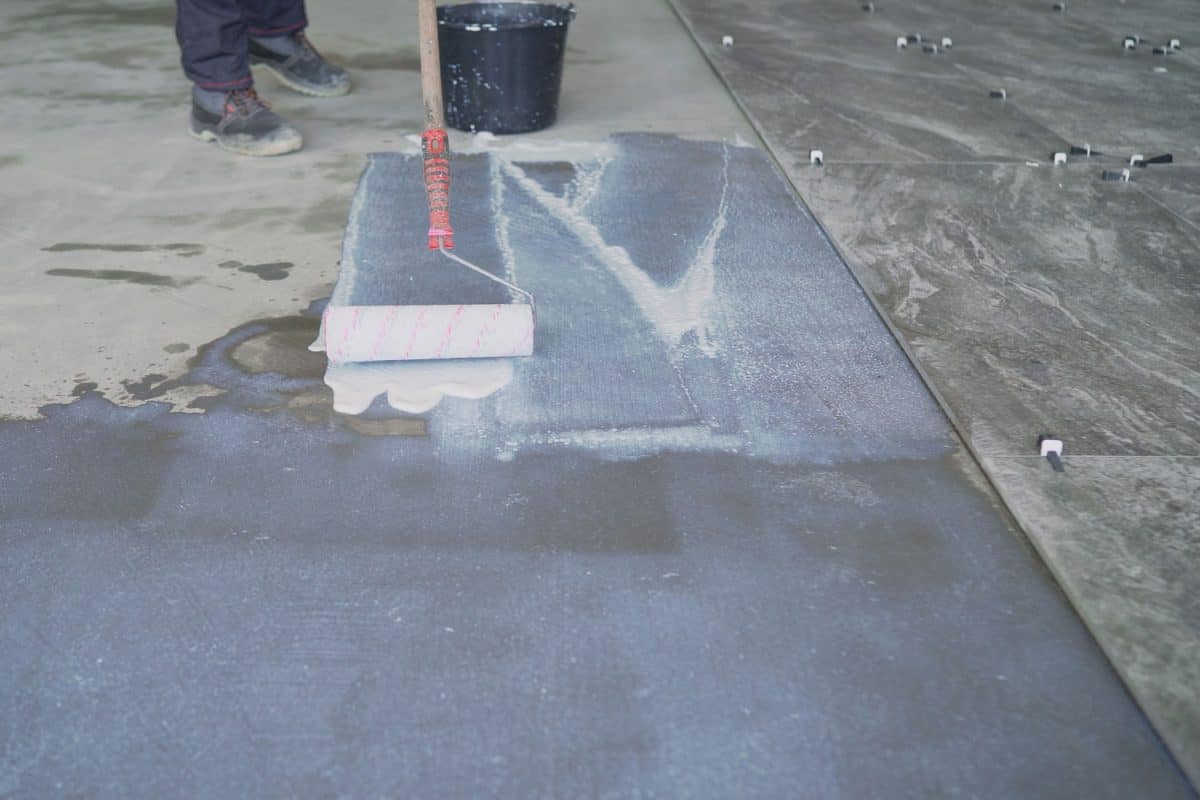
3. Cost
When choosing a paver sealer, make sure that you monitor your expenses. Start by determining the location and the size of the area that needs sealing. It will help you know the approximate amount you will have to spend.
You should also consider the brand you are buying. A branded sealer is more expensive but still serves the same purpose as a regular one.
Also, remember that you will need a few tools and materials to seal your pavers. This will affect the overall cost of your sealing project. If you want, you can also hire professionals to do the job for you. However, this will cost more because of labor fees.
4. Shelf Life
Some of the best paver sealers last longer when applied. The sealer will only start to wear off after three years.
However, if you apply a paver sealer that is almost past its shelf life, the quality of the product is likely to have degraded at that point. This is why it is advisable to use the product immediately after buying it.
Best Paver Sealers On The Market
1. Foundation Armor Concrete Sealer and Paver Sealer
Foundation Armor Sealer is a solvent-based acrylic sealer that is designed for non-porous surfaces. This sealer does not add an unpleasant yellow tint to the finish. It has a glossy wet look that will certainly add a stylish look to your pavers. After being applied, this sealer can darken the shade of the pavers.
One gallon of the product can seal an area of approximately 200 square feet. One upside of using this sealer is that it lasts for many years and it is great for both outdoor and indoor pavers. However, the product is quite expensive. Since it is a solvent-based sealer, it is harmful to the environment.
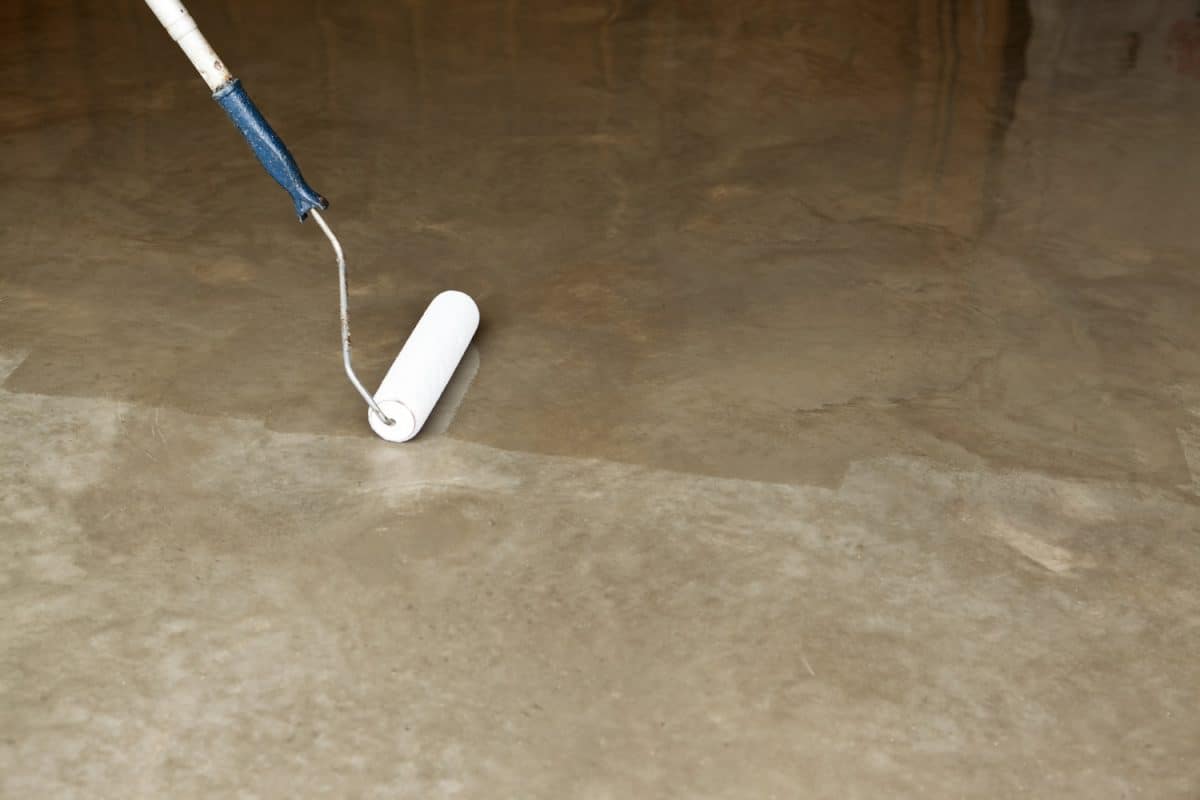
2. StoneTech BulletProof Sealer
StoneTech Bulletproof Sealer prevents deterioration that is caused by chemicals, thawing, and freezing. It also protects the pavers from mold and mildew. Because of this, it is a viable option for areas that experience cold and wet weather.
This sealer dries to a matte finish. Unlike other sealers, it does not make the stone slippery even when it's wet. This is because it creates a protective layer on the surface of the pavers.
It is advisable to apply a single coat onto the surface if the paver is non-porous. However, for pavers that have high absorbency rates, it is better to apply two coatings. You should wait until the first coat is dry before applying the second coating. Drying usually takes up to 24 hours.
Check out the STONETECH BulletProof Sealant on Amazon.
3. Miracle Sealant 511 Porous Plus Penetrating Sealer
One upside of using this sealer is that it protects the paving stones against stains and water, and also keeps the surface from becoming slippery. It can even prevent your pavers from turning yellow when exposed to sunlight for long periods of time.
The drawback of using this product is that it emits a very strong odor when applied.
Check out the Miracle Sealant on Amazon.
In Closing
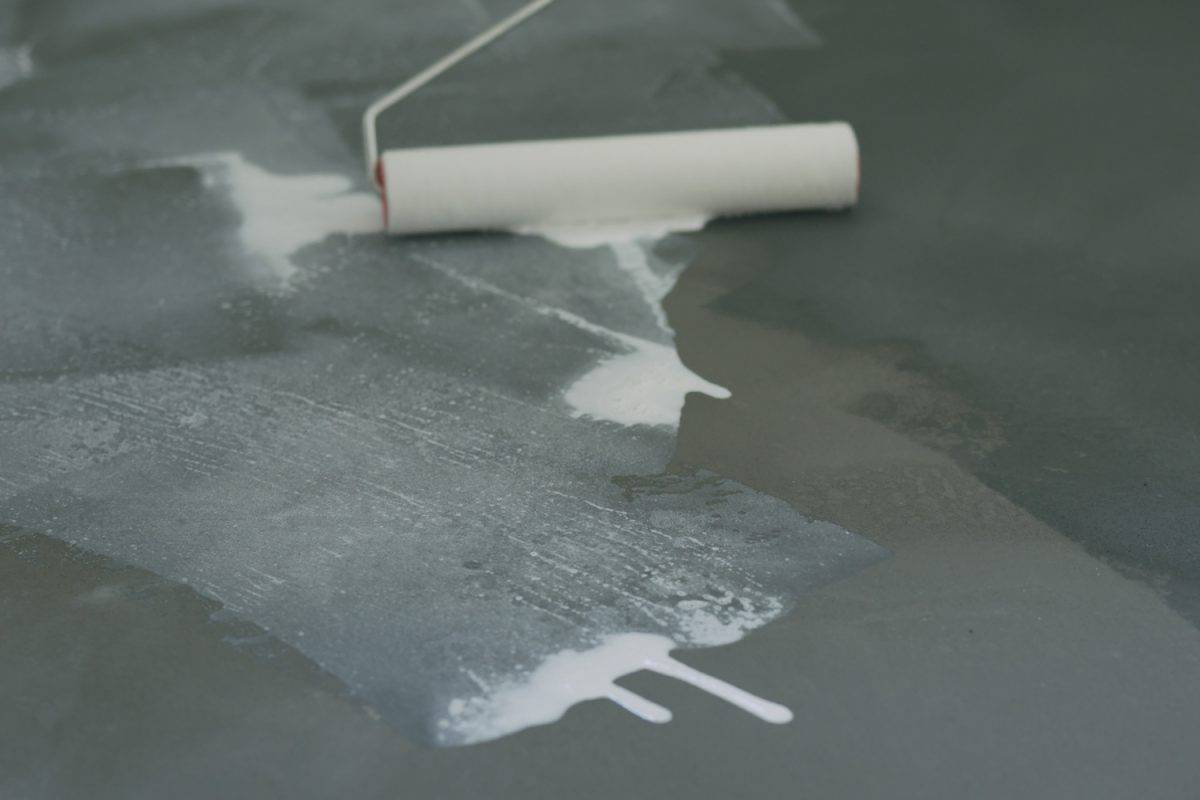
There are a lot of sealer options you can choose from. It's important to check the quality of the product before using it. Keep in mind that it's not particularly advisable to use expired sealers or ones that are close to expiration because they are less effective when applied.
If you have found this article helpful, check out these other posts:



![Vibrant Red Paver Stone Path, Can You Spray Paver Sealer? [How To Apply It]](https://pavingplatform.com/wp-content/uploads/2022/04/Vibrant-Red-Paver-Stone-Path-600x400.jpg)
![Properly laid out red pavers for a garden, Can You Tint Paver Sealer? [And How To]](https://pavingplatform.com/wp-content/uploads/2022/04/Properly-laid-out-red-pavers-for-a-garden-600x400.jpg)
